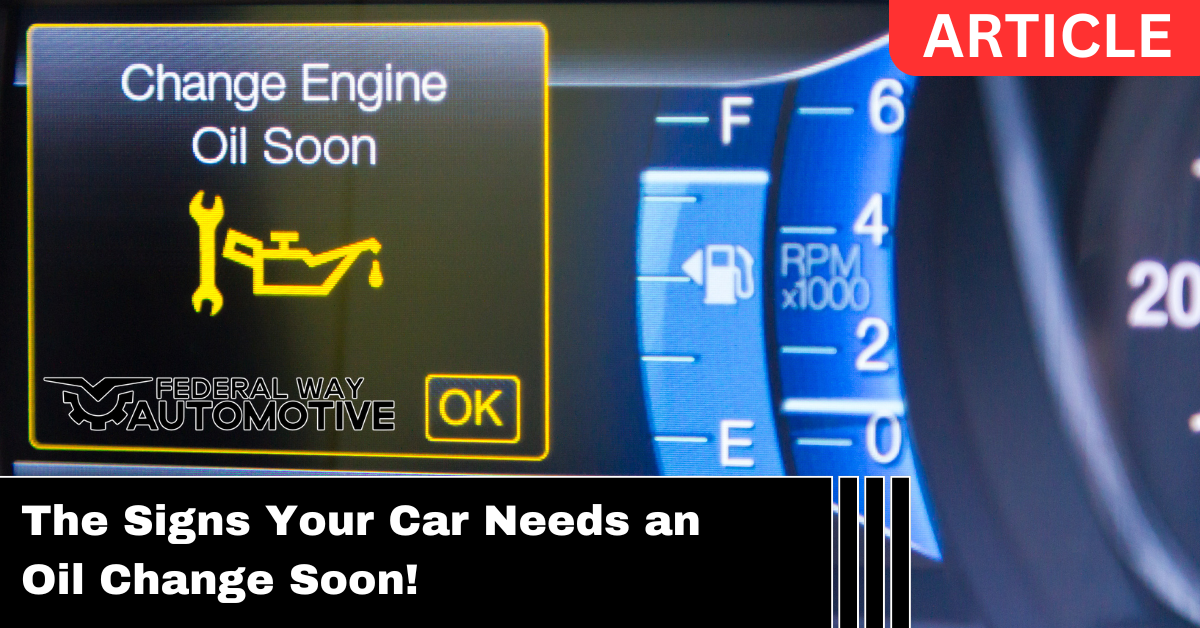Maintaining your car’s health is crucial, and knowing when it needs an oil change can save you from potential headaches and costly repairs. Dashboard warning lights, unusual engine noise, or a burning smell are just a few indicators. But how do you know when it’s really time for that essential oil change? Understanding these signs in detail can make all the difference in maintaining your vehicle’s performance and longevity. Let’s explore these telltale symptoms further, so you can keep your engine running smoothly.
Dashboard Warning Lights
When your dashboard warning lights come on, it’s a clear signal that your car needs immediate attention, especially for an oil change. These lights alert you to potential issues before they become severe. The oil change light specifically indicates that it’s time to replace the oil in your engine according to the recommended oil change interval of your vehicle. Ignoring this light can lead to decreased engine performance and significant damage.
Another critical warning sign is the check engine light. While it can indicate various issues, one common cause is low or dirty oil. You should check your oil levels and quality right away if this light illuminates. Neglecting to do so can result in costly repairs or even complete engine failure.
Consult your vehicle’s manual to understand the specific meanings of your dashboard lights. Promptly scheduling an oil change when these lights come on can save you from extensive repairs and keep your car running smoothly.
Engine Noise and Knocking
Hearing unusual engine noise or knocking often means your car’s oil isn’t providing adequate lubrication. When the oil level is low or the oil is dirty, it can’t properly lubricate the engine parts, leading to increased friction. This friction causes unsettling knocking or rumbling sounds. If you ignore these noises, you risk severe engine damage.
Knocking sounds can indicate that the engine’s moving parts are grinding against each other due to low oil or inadequate lubrication. This affects your engine’s performance and threatens its overall health. Without sufficient lubrication, the engine’s components wear out faster, leading to potential long-term damage that can be costly to repair.
Addressing engine noise promptly with an oil change is important. Fresh, clean oil ensures that all parts are well-lubricated, preventing friction and maintaining smooth engine operation. By keeping your oil at the correct level and free of contaminants, you protect your engine from damage and avoid expensive repairs down the road.
Dark, Dirty Oil
Dark, dirty oil is a clear indication that your car needs an oil change. Over time, used oil collects particles from the engine, causing it to darken and become gritty. When you check your oil, look for a color that’s amber and translucent.
If the oil appears dark and dirty, it’s a sign that it’s no longer providing proper engine lubrication. Monitoring the color and consistency of your oil is essential. Clean oil ensures that your engine runs smoothly, reducing wear and tear on its components.
Dark oil indicates that contaminants and particles have accumulated, leading to increased friction and potential engine damage.
Oil Smell Inside Car
If you smell oil inside your car, it’s a strong indication that there’s an oil leak needing immediate attention. An oil leak not only causes that distinct oil smell inside the car but can also lead to severe engine damage if ignored. Ignoring this symptom can result in your engine overheating, especially if the oil level drops too low.
Unusual smells in your car are your vehicle’s way of alerting you that something’s wrong. While an oil smell suggests a potential oil leak, a gas smell inside the car could indicate overheating or other critical issues. Both situations call for immediate maintenance to prevent further complications.
Prompt action is essential when you detect any unusual smells. A professional inspection will help diagnose the issue accurately and determine the source of the oil leak. This way, you can address the problem before it escalates into more severe damage, like engine failure.
Exhaust Smoke
Noticing excessive exhaust smoke is a vital sign that your car might need an oil change. When you see abnormal smoke billowing from your exhaust, it often indicates that your engine is burning oil. This can happen due to oil leaks or faulty engine components, both of which require immediate attention.
If your engine isn’t properly lubricated, it may produce thick, white smoke from the tailpipe, signaling that an oil change is necessary.
Ignoring exhaust smoke can lead to severe engine damage, impacting your vehicle’s best performance. The burning oil means your engine isn’t getting the lubrication it needs, causing increased friction and wear on its parts. This can result in costly repairs down the line. Hence, if you notice any unusual smoke, it’s important to have your engine checked promptly.
Low Oil Levels Can Damage Your Engine
Running your car with a low oil level means there’s insufficient oil in the system to properly lubricate the engine. This can lead to increased friction, overheating, and eventually severe engine damage. Regularly check your oil level using the dipstick to make sure your vehicle has the right amount of oil.
Key indicators that your vehicle needs an oil change due to a low oil level include:
- Dashboard Warning Light: If the oil warning light illuminates, it’s a clear sign that your oil level is low and you need an oil change.
- Unusual Engine Noise: A low oil level can cause the engine to make knocking or grinding noises due to lack of lubrication.
- Burning Oil Smell: This could indicate an oil leak, meaning the oil is low and not circulating properly.
- Frequent Oil Checks: If you’re constantly topping up the oil, it may indicate an oil leak or that the vehicle needs an oil change more frequently.
Excessive Mileage Degrades Your Oil
High mileage on your vehicle means you should be more vigilant about regular oil changes. As your car racks up miles, engine wear and oil degradation become more significant issues. Older vehicles, in particular, tend to accumulate higher mileage, which can lead to quicker oil breakdown and increased engine wear. To maintain your engine’s health, adhere to a more disciplined oil change schedule.
Consult your owner’s manual for mileage-specific recommendations. Regular oil changes are important for maintaining engine health, especially when dealing with high mileage. Ignoring these intervals can lead to severe engine damage and costly repairs down the line.
Older vehicles might require more frequent oil changes due to their age and the likelihood of accumulated engine wear. Keeping track of your mileage and sticking to a rigorous maintenance schedule will ensure your engine runs smoothly for years to come.
Act Now to Avoid Costly Repairs Down the Road
Don’t ignore the signs that your car needs an oil change. If you notice dashboard warning lights, engine noise, dark oil, or odd smells, it’s time to take action. Checking your oil level regularly and being aware of exhaust smoke, burning smells, and abnormal vibrations will help maintain your engine in top shape.
Schedule an oil change with Federal Way Automotive today to ensure your vehicle runs smoothly and reliably. Our expert technicians are here to help you keep your car in excellent condition, providing the best service in Federal Way, WA, and surrounding areas.


